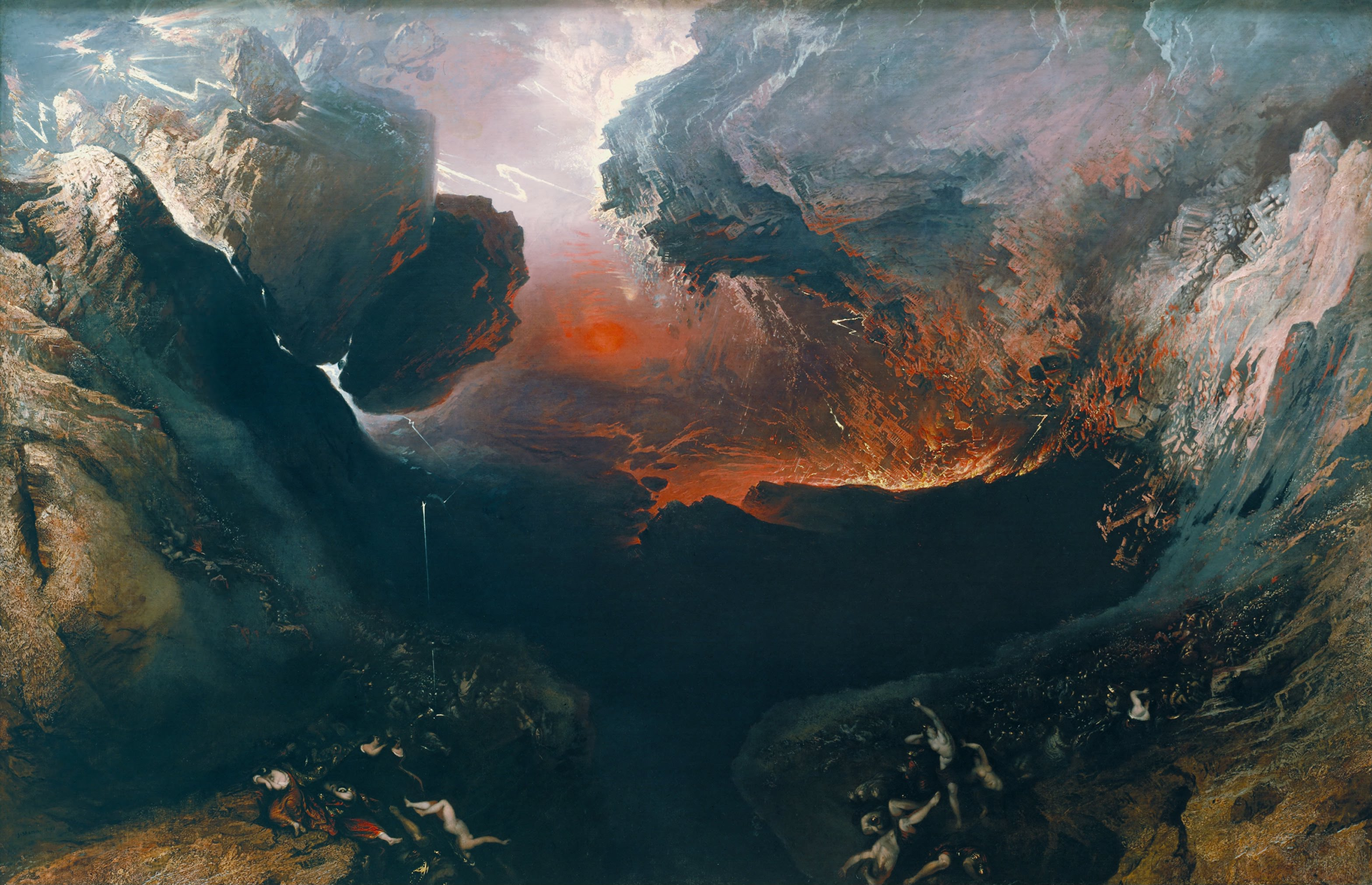I ought? I owe it to Whom?
 |
| The Great Day of His Wrath by John Martin, circa 1851. Public Domain via Wikimedia. |
 The Genealogy of Morals by Friedrich Nietzsche
The Genealogy of Morals by Friedrich NietzscheMy rating: 3 of 5 stars
The word ought has its origins in the word owe. Whether or not this relationship survives translation I don't know, but why let semantics get in the way of a good idea. Reading Beyond Good and Evil before attempting this follow-up work would be the more logical option. But I doubt one can simply dip one's toe in to Nietzsche anyway - it is a case of diving in head first and trying to make sense of the turmoil. Nietzsche's racism reflects the tone of the times, and there is plenty of conflicting views to support the argument that his sister re-construed his work to fit comfortably with the Nazis. But in the end I felt Nietzsche's racism was as relevant to Nazism as Jack London's. It is interesting that he seems to support women's rights (remembering that J.S. Mill's On the Subjection of Women was published 18 years before), planes the edges off his Orientalism with Buddhism and Brahmanism, and doesn't appear so overjoyed at the "death of God" as Atheist's gleefully point out. Indeed, Nietzsche makes a point of saying that science is a more advanced form of the "ascetic ideal". The back cover of the work sums up Nietzsche's thesis as "culture and morality, rather than being eternal verities, are human-made". This is an oversimplification that reduces the depth of his work. Far be it for me to be an apologist for Nietzsche - the "intellectual" gatekeepers would never let such work be published today - but the brilliance is in its originality. To comprehend the thesis adequately, prior reading of Buddhism, Luther, Brahmanism, Kant, Spinoza, Goethe, Feuerbach, and Schopenhauer would be helpful but is not essential. However, a knowledge of the classics (at least Plato) is important. Nietzsche final words are that "man will wish Nothingness rather than not wish at all". I immediately thought of the maxim "if you fail to plan, you plan to fail". Probably the most useful idea from this work is that one needs to go back to first principles in establishing a philosophy - does or can truth exist? - (and even if we don't care to consciously develop a philosophy, the shepherds of the "herd mentality" will provide one for us without our knowledge or consent), and Nietzsche does so by regularly referring back to "Heracleitus" and Hesiod. I have already picked up the scent of the pre-Socratics and their importance in understanding the human-created chasm between philosophy and religion (and more recently, but less convincingly, between science and religion), and Nietzsche confirms this clue. Rather than the über-power of pre-Enlightenment Christian church and its priesthood driving the herd, Nietzsche foresaw ("forsooth"?) the pluralism of modern asceticism (which annoys me on Facebook, Twitter, and the news media any time I look). Admittedly, he was optimistic about this future, but then he didn't know what "the Internet" would say about him (how I loathe that saying!). So why don't I see the ascetic for what it is and just get off Facebook once again? Well. it's the guilt, you see. But you can't blame me - I didn't create it (Facebook or the guilt).
View all my reviews